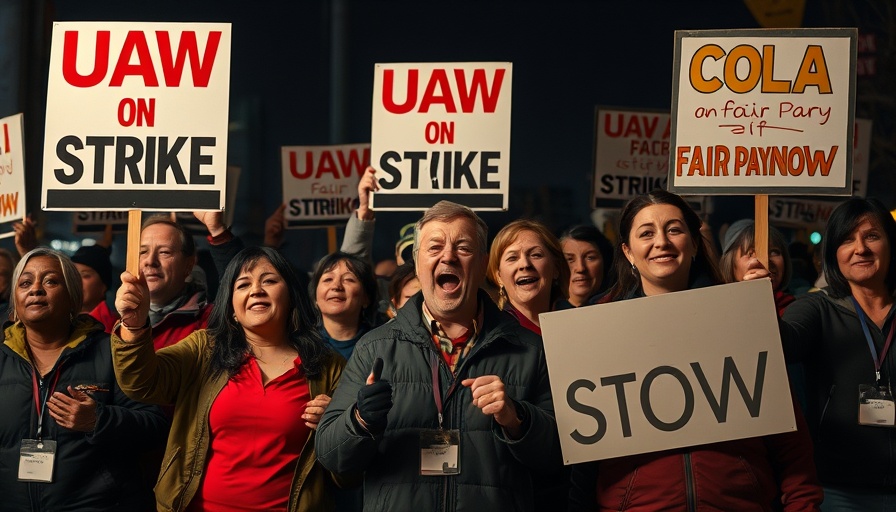
The Shift in Union Dynamics: Autoworkers Seek Solidarity
Amid ongoing tensions in the labor market, a narrative is emerging that puts a spotlight on the auto industry, particularly traditional unions like the United Auto Workers (UAW). Once a stronghold of worker solidarity, the UAW now faces internal strife as its membership demographics shift dramatically. Autoworkers, such as David Pillsbury of Flint, Mich., highlight a growing disconnect between the union’s traditional blue-collar roots and its newfound white-collar members. This dissonance is reshaping the UAW's political landscape, creating a rift that reflects broader changes across the American workforce.
A Union's Identity in Flux
The United Auto Workers, once a formidable force representing American laborers, has dwindled from a peak of 1.5 million members in 1979 to fewer than 400,000 today. Jobs in the auto industry have migrated overseas, and the UAW has broadened its tent to include a more diverse range of occupations—from defense attorneys to librarians. As of now, less than a third of UAW members identify as traditional autoworkers. This dilution of identity may leave core members like Pillsbury feeling disconnected from a union that once symbolized middle-class job stability and solidarity.
Political Divergence Among Workers
With the inclusion of non-traditional members, the UAW now grapples with a differing political perspective that threatens to fracture its base. While long-time autoworkers are increasingly leaning toward conservative values, newer union members, who often engage in campus activism, tend to align more with progressive causes. This political divide echoes a larger trend in labor movements across the country, where worker interests are colliding with a new generation advocating for social justice and environmental responsibility.
Why This Matters to the Wider Workforce
Understanding the dynamics at play within the UAW can illuminate much about the future of labor in America. Traditional unions have always been a fierce advocate for worker rights, negotiating benefits and fighting against corporate interests. However, if these unions cannot adjust to the changing demographics and priorities of their membership, they risk diminishing their relevance. The challenge is not just for the UAW; it reflects a nationwide crisis in labor organization as workers search for a collective voice.
Bridging the Gap: Finding Common Ground
For unions like the UAW to thrive, it is crucial that they find ways to bridge this ideological gap. This might mean redefining what solidarity looks like in today’s context. By fostering dialogue opportunities between long-standing factory workers and recent inductees, unions can work towards a more unified front that values both tradition and progressive change. Offering training programs that promote labor history alongside current social issues may induce a stronger camaraderie amongst diverse members.
Taking Action: What You Can Do
As the landscape of labor continues to evolve, individuals within the workforce, particularly those in managerial or decision-making positions, should consider how they can support their unions. This could involve advocating for more inclusive policies or helping to facilitate dialogues that respect and align both traditional views and those of newer members.
In conclusion, the challenges facing the UAW reveal much about the current state of American labor. Workers are calling for a return to union solidarity, seeking recognition that their diverse perspectives can strengthen, rather than undermine, the aims of collective bargaining. By engaging in this conversation and strategizing for a collaborative future, all members of the workforce can play a role in reviving the principles of unity and representation that unions once represented.
If you’re interested in contributing to your local union or starting a dialogue among your coworkers, now is the time to get involved. Collective action starts with individual steps.
 Add Row
Add Row  Add
Add 




Write A Comment